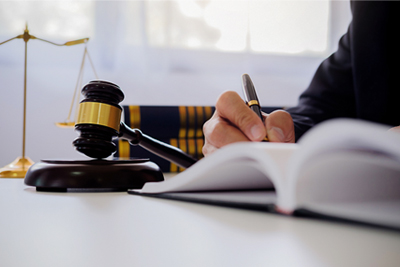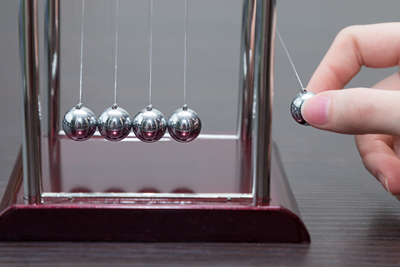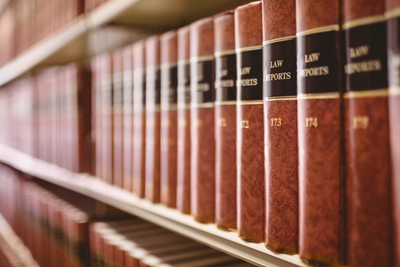
SC orders NEET for admission to medical colleges in India
Supreme Court ordered to conduct the National Eligibility Cum Entrance Test (NEET) 2016 in Two Phases. The Petition was filed by Sankalp Charitable Trust for a direction to hold National Eligibility Cum Entrance Test (NEET) in terms of Regulation of Medical Council of India (MCI) for academic year 2016-17 for admission to MBBS, BDS and like Courses of medical colleges throughout the country.
Upload FIRs in Police Websites
In the matter of Youth Bar Association of India vs. Union of India, The Supreme Court directed that the copies of the FIRs, unless the offence is sensitive in nature, like sexual offences, offences pertaining to insurgency, terrorism and of that category, offences under POCSO Act and such other offences, should be uploaded on the police website, and if there is no such website, on the official website of the State Government, within twenty-four hours of the registration of the First Information Report, so that the accused or any person connected with the same can download the FIR and file the appropriate application before the Court as per law, for redressal of his grievances. The Bench clarified that in case there is connectivity problems due to geographical location, or there is some other unavoidable difficulty, the time can be extended up to forty-eight hours. The said 48 hours can be extended up to 72 hours at max, and it is only relatable to connectivity problems due to geographical location.
Entry Tax on Goods are constitutionally valid
In the matter of Jindal Stainless Ltd. vs. State of Haryana, the Nine Judge Constitution Bench upheld the constitutional validity of Entry Tax imposed by States on goods coming in from other states. The Bench also directed the three Judge Bench to decide whether the States entry tax laws on the basis of Guidelines issued by this Bench
SC can transfer cases from Jammu & Kashmir Courts to courts outside it and vice versa
In Anita Kushwaha vs. Pushpa Sudan case, the Constitution Bench of the Supreme Court held that Supreme Court can, by invoking Article 32, 136 and 142 of the Constitution, is empowered to transfer a case from a Court in the State of Jammu and Kashmir to a Court outside the State or vice versa. The five Judges Bench comprising of Chief Justice of India Dr. T.S. Thakur, Justices Fakkir Mohamed Ibrahim Kalifulla, A.K. Sikri, S.A. Bobde, and R. Banumathi further made an important observation that Access to Justice is guaranteed to citizens by Article 14 and Article 21 of the Constitution of India.
Forcing Husband To Get Separated From His Parents, Amounts To Cruelty
The Supreme Court of India held that persistent effort of the wife enforcing her husband to be separated from the family constitutes an act of cruelty to grant divorce.
All Tribunals are not necessary parties to the proceedings where legality of its orders challenged [S. Kazi vs. Muslim education society]
The Supreme Court held that all Tribunals are not necessary parties in a Special Civil Application under Articles 226 and 227 of the Constitution, when they are not required to defend its orders when challenged before the High Court.
Public Service Commission shall provide Information about answer sheets and Marks under RTI [Kerala Public Service Commission vs State Information Commission].
The Supreme Court observed that the request of the information seeker about the information of his answer sheets and details of the interview marks can be and should be provided to him by Public Service Commission under Right to Information Act. It is also observed that, since there is a fiduciary relationship between the PSC and the Examiners, any information about the examiners is not liable to be disclosed.
No liquor shops near National Highways [State of Tamil Nadu vs. K. Balu]
In the matter of State of Tamil Nadu vs. K. Balu, the Supreme Court has ordered the closure of all liquor shops along National and state highways stressing on the need to improve road safety and curb menace of drunk driving. A bench headed by Chief Justice T S Thakur also ruled that there should not be any liquor shops within 500 metres of such highways and they should not be visible from such roads.
Supreme Court upholds the Criminal Defamation Law
The Supreme Court has upheld the law on Criminal Defamation, which was contested by the Congress leader Rahul Gandhi, Delhi Chief Minister Arvind Kejriwal and BJP leader Subramanian Swamy. The Bench comprising of Justice Dipak Misra and Justice P.C. Pant, held that the right to life under Article 21 includes the right to reputation. In this matter, the petitioner contested that the criminal defamation law was in conflict with the freedom of speech and expression. But, the Apex Court dismissed their petition and stated that the provisions of defamation, as provided in Section 499 and Section 500 of the Indian Penal Code, and Section 199 of the Criminal Procedural Code, do not have the chilling effect on the freedom of speech. Further, the reputations cannot be allowed to be sullied on the anvils of free speech as free speech is not absolute. Right to life and freedom of speech have to be mutually respected.
Copyright 2024 – Helpline Law - HLL001




